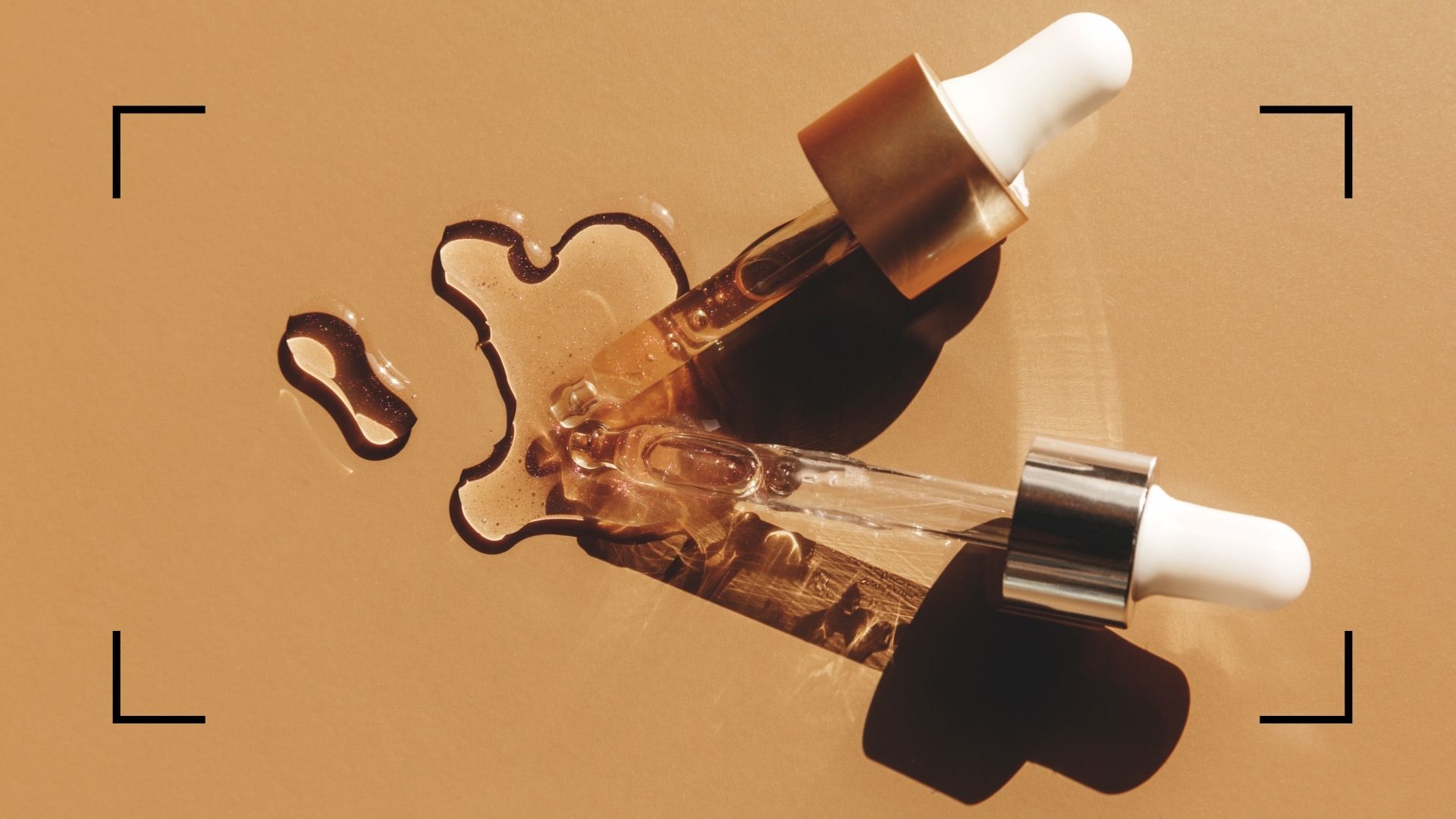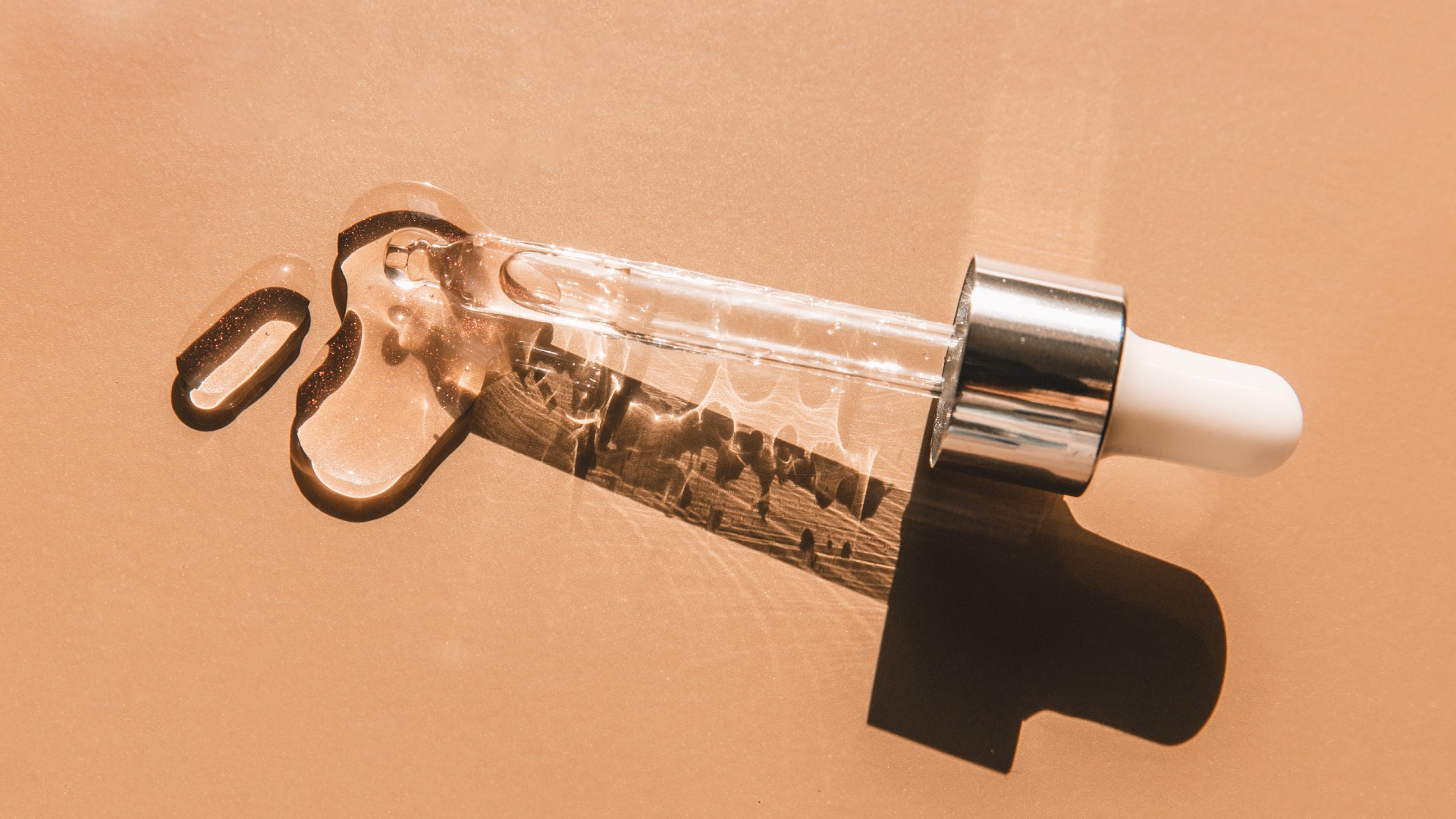AHA vs BHA—the differences and benefits of these potent skincare acids
Skin experts weigh in on AHA vs BHA—which acid exfoliator is best for your skin?


If you're trying to pick between AHA vs BHA, we're here to help. The skincare ingredients alpha-hydroxy acid (AHA) and beta-hydroxy acid (BHA) are two families of chemical exfoliants. But when it comes to AHA vs BHA, they each have their own specialties.
It's worth getting to know exactly how these ingredients work in your skincare routine, especially if skin texture, dullness, uneven tone, or excess oil are top concerns. While both are skincare acids, they perform slightly different functions and can be used to tackle different skin concerns. One is ideal in skincare for oily skin and the other is more suited to skin smoothing, but they can also be used together very effectively on some skin types.
If you’re not sure which of these skincare ingredients to pick, our expert guide to AHA vs BHA will give you all the information you need to make the right choice.
AHA vs BHA: Your expert guide
What are AHAs and BHA?
What are AHAs?
“AHA’s are a group of naturally occurring acids derived mainly from fruit, sugar cane, milk, and rice,” says Hollie Simpson, founder of Our Skin Academy. “They work by dissolving the protein links which bind the skin cells together.”
Several different acids fall under the AHA umbrella. You’ve probably seen these names in everything from the best cleansers and serums to chemical peels and masks:
- Glycolic acid
- Mandelic acid
- Lactic acid
- Malic acid
- Tartaric acid
What is BHA?
“There is only one true BHA: Salicylic acid derived from willow bark,” explains Hollie. But derivatives like tropic acid and beta-hydroxybutanoic acid also fall under the BHA umbrella.
What are the benefits of each?
AHA benefits
Each AHA puts its own spin on chemical exfoliation. “Glycolic acid is the strongest AHA and most widely used,” explains Ashley Holladay, senior editor at Skincare Lab. AHAs such as mandelic and lactic acid are known to be a little gentler on the skin and in terms of results.
Sign up to our free daily email for the latest royal and entertainment news, interesting opinion, expert advice on styling and beauty trends, and no-nonsense guides to the health and wellness questions you want answered.
But the entire AHA family is known for producing a radiant glow. After your chosen AHA breaks apart the glue that holds dead and dull skin cells together, it promotes collagen synthesis, leaving you with softer, smoother, and brighter skin.
BHA benefits
BHA is a chemical exfoliant like AHA, but instead of focusing on the surface of your skin, it can penetrate the pores and help flush out dirt and oils, which makes it an excellent addition to a skincare routine for acne.
“BHAs are a more effective option for oily and blemish-prone skin,” agrees Ashley. “This hydroxy acid can get deeper into pores to clear out sebum that can lead to acne.”
AHA vs BHA: two key differences

In the skincare industry, the AHA vs BHA distinction really comes down to what issue each ingredient is best at solving:
- Tone and texture: “AHAs are better for anti-aging and uneven tone,” explains Ashley. “They can help reduce the appearance of fine lines and wrinkles like crow's feet, age spots, and pigmentation.” This is because AHA helps shift dull and discolored skin cells.
- Oil and breakouts: Compared to AHA, BHA has a larger molecular structure, and it’s oil-soluble. This allows it to get in to clear up congestion. “BHAs are a great option for oily and blemish-prone skin,” says Ashley. They can help you finally nail how to get rid of blackheads and reduce future breakouts.
How should you use AHA and BHA?
Whichever acid is your pick out of AHA vs BHA, start with a low concentration and try a patch test to see how your skin responds. Since products can differ significantly depending on how they’re formulated, always follow the instructions on the packaging.
Use an AHA or BHA product on freshly cleansed skin in the evening. And to answer the big question - how often should you exfoliate your face - most people can do this about two or three times per week if your skin can tolerate it. Just don’t get carried away. “AHAs and BHAs can be damaging to the skin barrier if they are overused,” advises Elle MacLeman, skincare biochemist for The Derm Review.
Finally, since your newly exposed skin cells will be more sensitive to UV damage, wear the best facial sunscreen for your skin type to avoid undoing your good work.
When shouldn't I use these ingredients?
- If they burn: “If you experience sensitivity greater than a little tingle or sting, discontinue use,” advises Elle.
- On inflamed skin: Anyone with sunburned skin or unhealed wounds should avoid applying these chemical exfoliators since they’re too harsh for vulnerable skin.
- On sensitive skin: You may find both AHA and BHA too irritating for regular use. If that’s you, the occasional gentle acid product might be the most you can use.
- With other actives: “Generally retinoids don’t mix well with AHAs and BHAs,” according to Elle, and even the best retinol cream can cause irritation. "It’s best to use them on separate nights or alternate them.”
But if one AHA or BHA product doesn't suit you, you’re not entirely out of luck. The specific acid or concentration may be too strong and your skin might be able to tolerate a gentler alternative.
If you are highly reactive, meaning you turn red or your skin burns when you use new products, try lactic acid. This AHA is a milder choice and could be a good starting point if you’re new to chemical exfoliation.
AHA vs BHA: w&h verdict
Despite performing slightly different functions, both acids have a lot in common. They’re both active ingredients that chemically exfoliate the skin, are naturally occurring but can also be produced synthetically.
“AHAs and BHAs help even skin tone and texture, gently exfoliate, and decrease inflammation. Both options can help minimize the appearance of pores,” says Ashley.
The one that's right for you comes down to your skin type and desired results. If you're looking for a chemical exfoliator that can fight dullness and fine lines to create a more radiant and youthful glow, AHA is your answer.
If you want to know how to get rid of acne or want a chemical exfoliator that can clear up oily skin, BHA is your best bet.
woman&home thanks Hollie Simpson of Our Skin Academy, Ashley Holladay of Skincare Lab, and Elle MacLeman of The Derm Review for their time and expertise.
A lifelong creative writer and beautyphile, Eunice Lucero-Lee graduated from De La Salle University in 2002 and was hired a year later to front all beauty coverage for Pink Magazine. A beauty, astrology, and pop culture obsessive and insider for over 18 years, Eunice is an internationally published editor (and now certified astrologer) whose work has been featured in publications such as Cosmopolitan, Esquire, and The Numinous, among many others.
